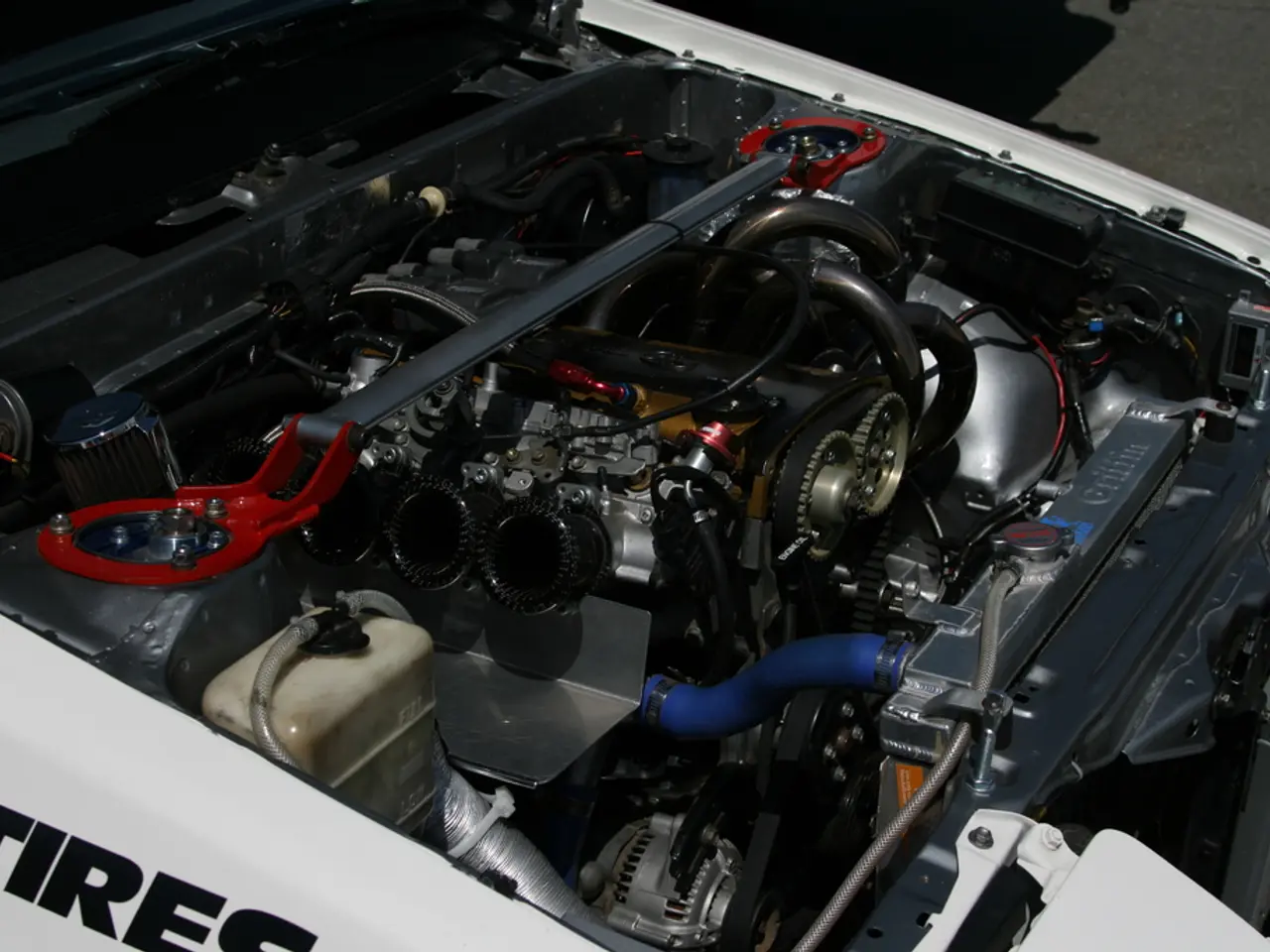Samsung Demonstrates Innovative 600-Mile Solid-State Battery Technology
In a significant development for the electric vehicle (EV) industry, Samsung has announced plans to launch commercial solid-state batteries (SSBs) by 2027. The South Korean tech giant aims to leverage its advanced manufacturing processes to compete directly with major industry players such as Toyota and CATL.
Samsung is currently in the advanced development phase of its SSBs, with no confirmed timeline for integration into devices like smartphones. However, the company's 2027 goal is explicitly for commercial SSBs, likely targeting electric vehicles (EVs) and high-value electronics.
Meanwhile, other major competitors, including Toyota, QuantumScape, and Solid Power, anticipate pilot production and initial EV integration between 2025 and 2028. By 2030, it is estimated that 10–15% of new EVs could feature solid-state batteries, marking a significant shift from niche to mainstream technology.
Samsung's SSB packs are designed to offer two to three times the energy density of current lithium-ion batteries, enabling lighter, more compact, and longer-range EVs. The batteries also promise improved safety due to nonflammable materials and simplified manufacturing processes, which could reduce costs and the risk of recalls.
The higher energy density, rapid charging, and improved safety of SSBs could accelerate EV market growth by 3–5 years, making predictions such as "peak oil demand" by 2030 more likely.
In addition to its SSB efforts, Samsung is also working to develop cheaper LFP (Lithium iron phosphate) and cobalt-free batteries, alongside a dry electrode production method for the more affordable EV segment. The company has delivered initial battery units from its pilot solid-state battery production line to several electric vehicle manufacturers for testing.
As the EV market prepares for this technological leap, companies like NIO and CATL are working towards a 15-year battery warranty to help establish a viable used EV market. Used models of electric vehicles with solid-state batteries are expected to enter the market in the future.
CATL and others have announced "million-mile" batteries before needing to be replaced, further underscoring the potential longevity and reliability of SSBs. The initial use of Samsung's solid-state batteries will be in luxury electric vehicles capable of exceeding 600 miles on a single charge.
The technology advancements in solid-state batteries suggest they will be available by 2030, but may not be for the mass market initially. Samsung showcased its solid-state battery technology at SNE Battery Day 2024 in Seoul on July 23.
It's worth noting that the UK infrastructure is still developing, with ultra-rapid chargers being the closest equivalent but generally not reaching those extreme charging speeds. However, with the advent of SSBs, charging times for EVs could significantly decrease, potentially making ultra-rapid charging a reality in the near future.
As the race for solid-state batteries heats up, it's clear that the EV market is on the cusp of a transformative period. The introduction of SSBs is poised to substantially impact the EV market by enabling safer, longer-range, and potentially cheaper vehicles, driving broader consumer adoption and reshaping the automotive landscape.
The finance sector could see increased investment in the renewable-energy industry as the advancements in solid-state batteries (SSBs) offer promise for the electric vehicle (EV) industry. Technology companies like Samsung, with their SSB projects, are striving to compete in the industry by targeting EVs and high-value electronics.
The data-and-cloud-computing industry may play a significant role in a transformative period for the EV market, as faster charging times for solid-state batteries could eventually make ultra-rapid charging a reality, providing infrastructure for a seamless EV adoption.
The renewable-energy industry, through advancements in solid-state batteries, is set to expand its reach beyond niche markets and reach the mass market, potentially reshaping the automotive landscape completely. This shift could also open up opportunities for businesses in the EV industry, such as car manufacturers and battery producers.




